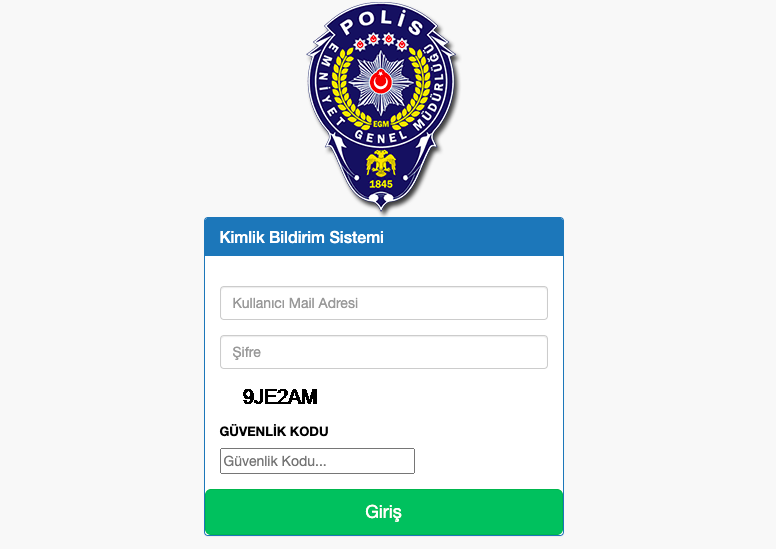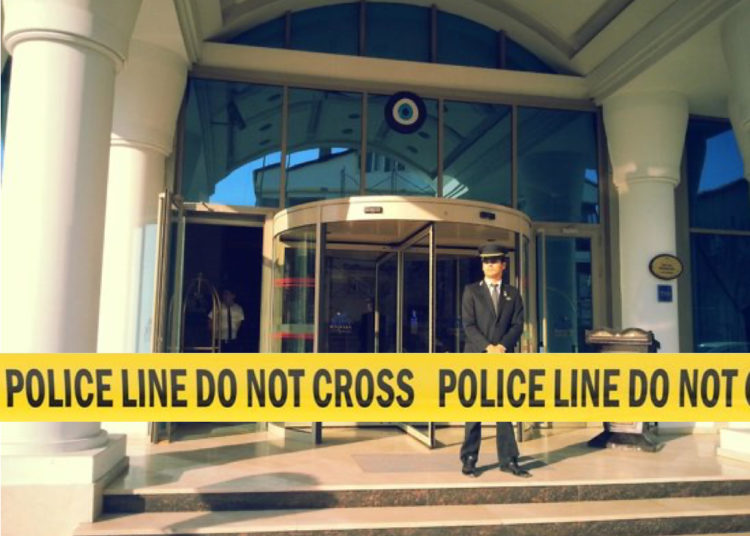A classified document obtained by Nordic Monitor has revealed that the Turkish police keep confidential information such as hotel records for an unlimited period time and use it in conducting investigations for security clearances.
A 12-page intelligence report on a suspect accused of affiliation with the Gülen movement, a group critical of the Turkish government that the authorities blame for a controversial coup attempt in 2016, includes information on first degree relatives, phone records, personal flight information, traffic tickets, social insurance statements, vehicle records, association membership and overnight stay records collected since 2015. The number of hotel rooms used is also stated in the document, showing how the police keep detailed records.
(The names and addresses of the Turkish nationals have been redacted for security reasons):
As part of Turkey’s massive witch-hunt carried out by the government against critics of President Recep Tayyip Erdoğan, many people are jailed on absurd charges, unaware that staying at the same hotel as suspects affiliated with the Gülen movement could lead to criminal charges. During interrogations, the police ask suspects who don’t know each other but had stayed at the same hotel at the same time in the past to explain any links between them. Similarly, the police also analyze HTS (Historical Traffic Search) records, which show phone records and signal reception by location obtained from cell towers, although using the same cell tower does not necessarily mean that two people are standing next to each other.
For instance, the indictment against Osman Kavala, a jailed businessman accused of attempting to overthrow the government in 2016, claims that many times between 2013 and 2016 signals on Kavala and US academic Henry Barkey’s phones came from the same area, implying Barkey and Kavala were working together. Barkey said their phones could easily have been in the same district of a crowded city without them meeting.
In another example an Istanbul court ordered the police to analyze hotel records to determine whether journalists İbrahim Aydın, Barış İnce, Can Uğur and Bülent Yılmaz, all from the socialist Birgün newspaper, stayed at hotels at the same time as anyone affiliated with the Gülen movement in 2019, in a case in which the journalists were accused of writing news stories based on a whistleblower’s disclosures.

Hotels, motels and guesthouses in Turkey are required to send their daily guest records to the police or gendarmerie via the ID Reporting System (Kimlik Bildirim Sistemi), a database administered by the police, at no later than 00:00 hours; otherwise an administrative fine is imposed. If someone who is wanted stays at the hotel, the system automatically issues an alert and law enforcement comes to detain the suspect. It is very common in Turkey that people who are unaware that detention warrants have been issued for them are detained at midnight while staying at a hotel.
President Erdoğan, who on March 2 promised to improve the judicial system and strengthen freedom of expression, said the police would no longer detain people at hotels at midnight. Instead, the suspects will be invited to the police station in the morning.
By law, official documents are kept for five years; however, police experts told Nordic Monitor that data stored in the database are never wiped and are regularly backed up.
As it happens, hotel records are one of the top keywords Turkish users have searched for in recent years. In particular people who want to join the civil service or have taken competitive exams for a state job ask in discussion forums whether their hotel records will have an effect on their security clearance, fearing that staying at a hotel with partners who are not their spouses may be evaluated as a reason for disqualification for the job by the Islamist government. Lawyers specialized in labor law say they have not witnessed such a thing but can’t promise it will never happens in today’s Turkey.
Nordic Monitor has learned that checking hotel records illegally has become a way of earning extra money for some corrupt police officers. Husbands or wives who are suspicious of their spouses pay bribes to policemen who have access to the ID Reporting database to find out if he or she checked into a hotel with another partner. Surely, it is easy to learn who has accessed such confidential information from the logs; however, it is also easier to present any search as an investigation into terror suspects.












